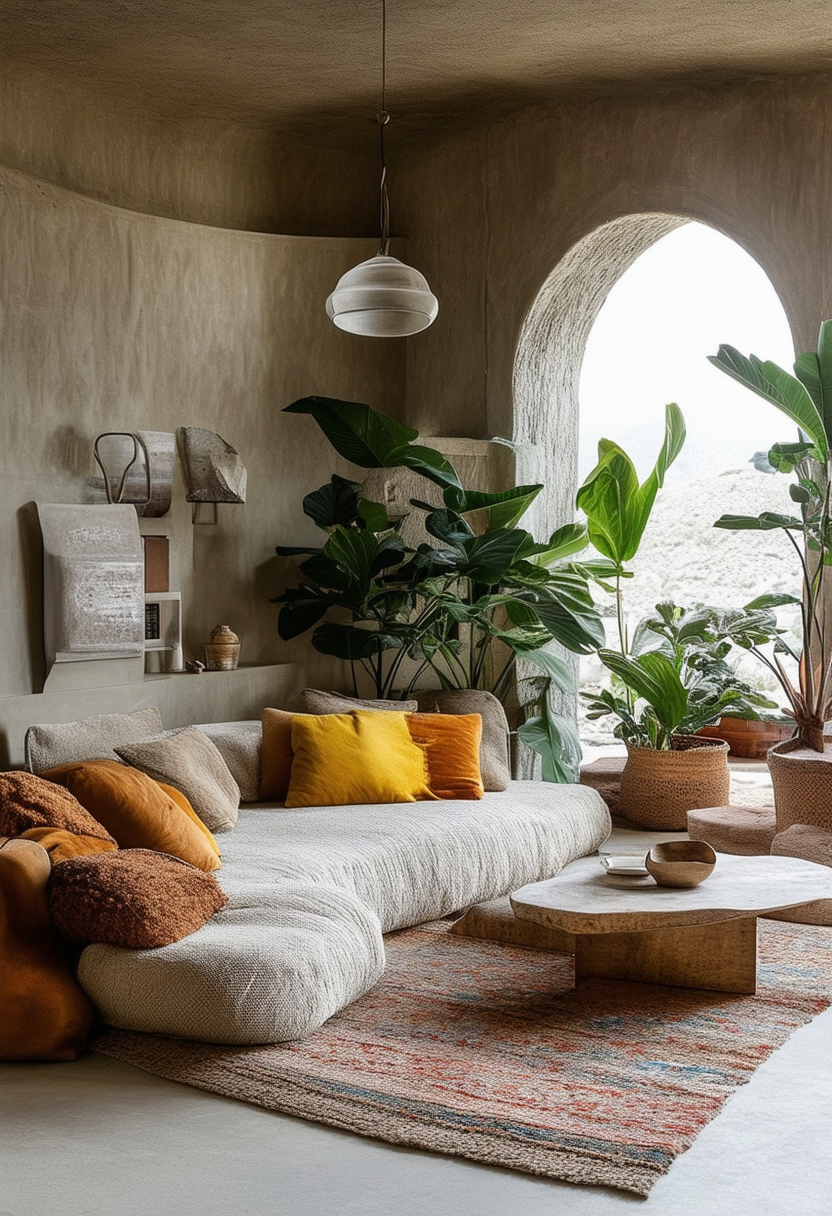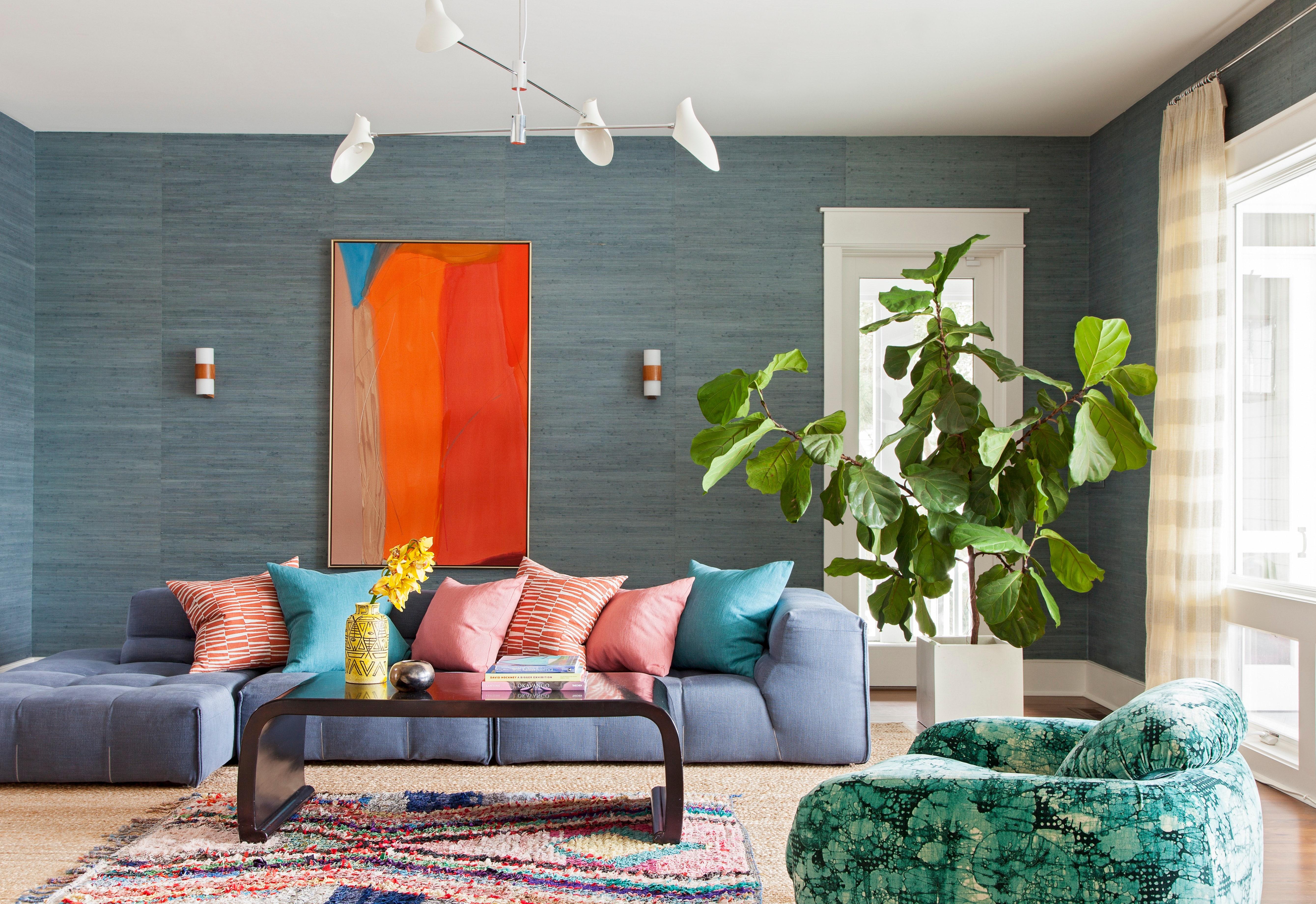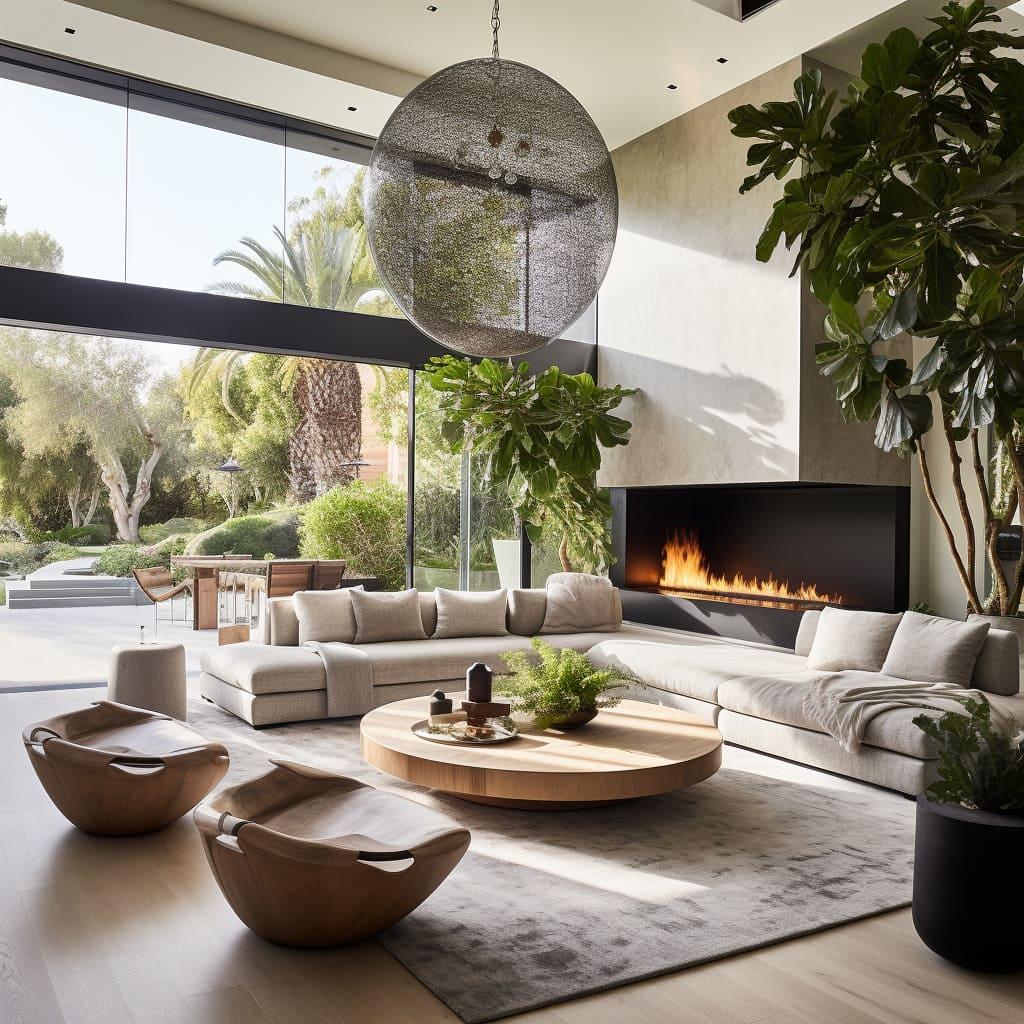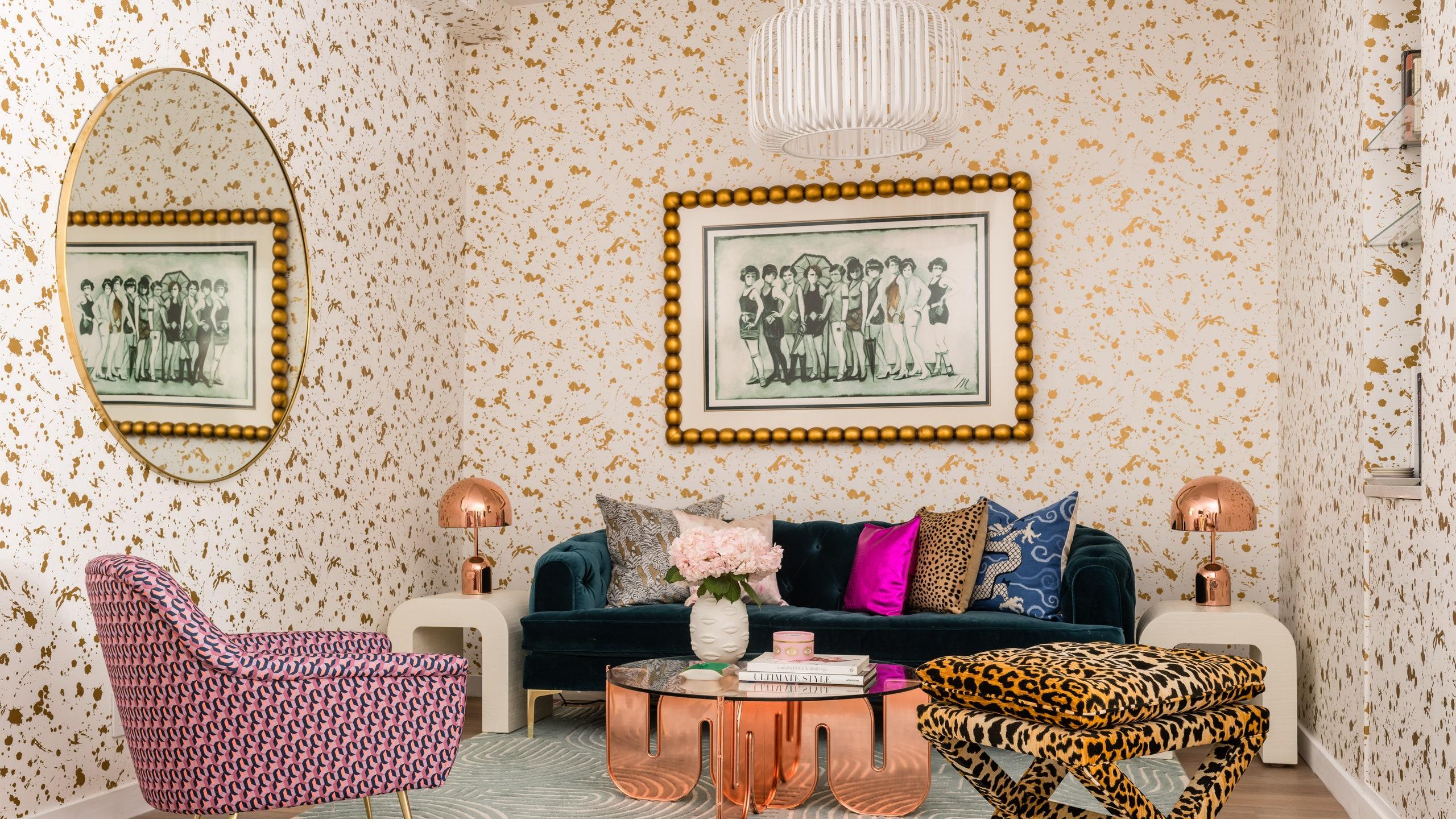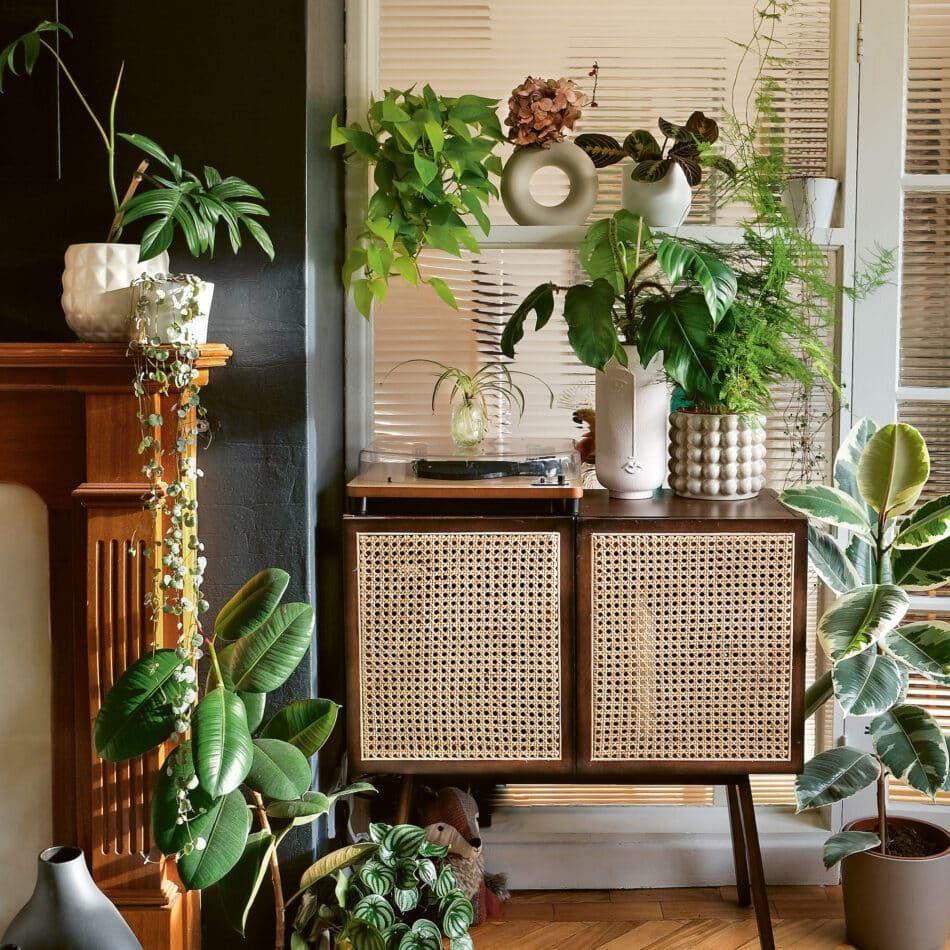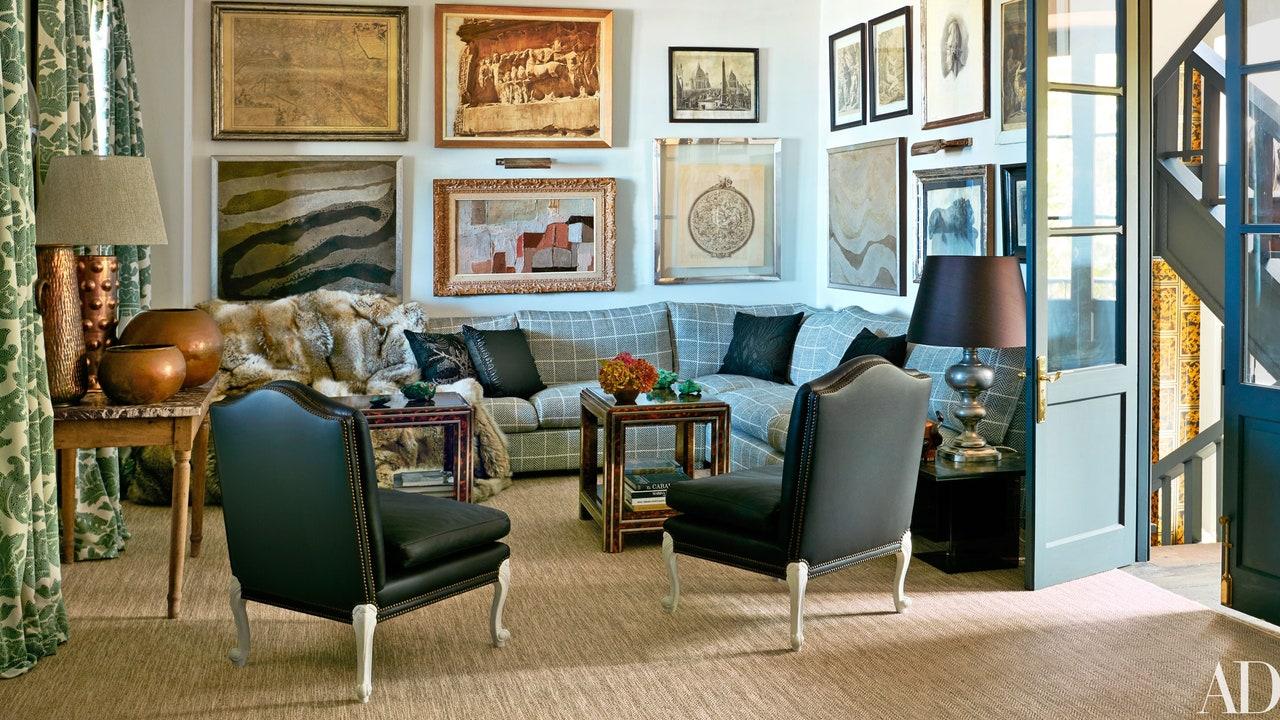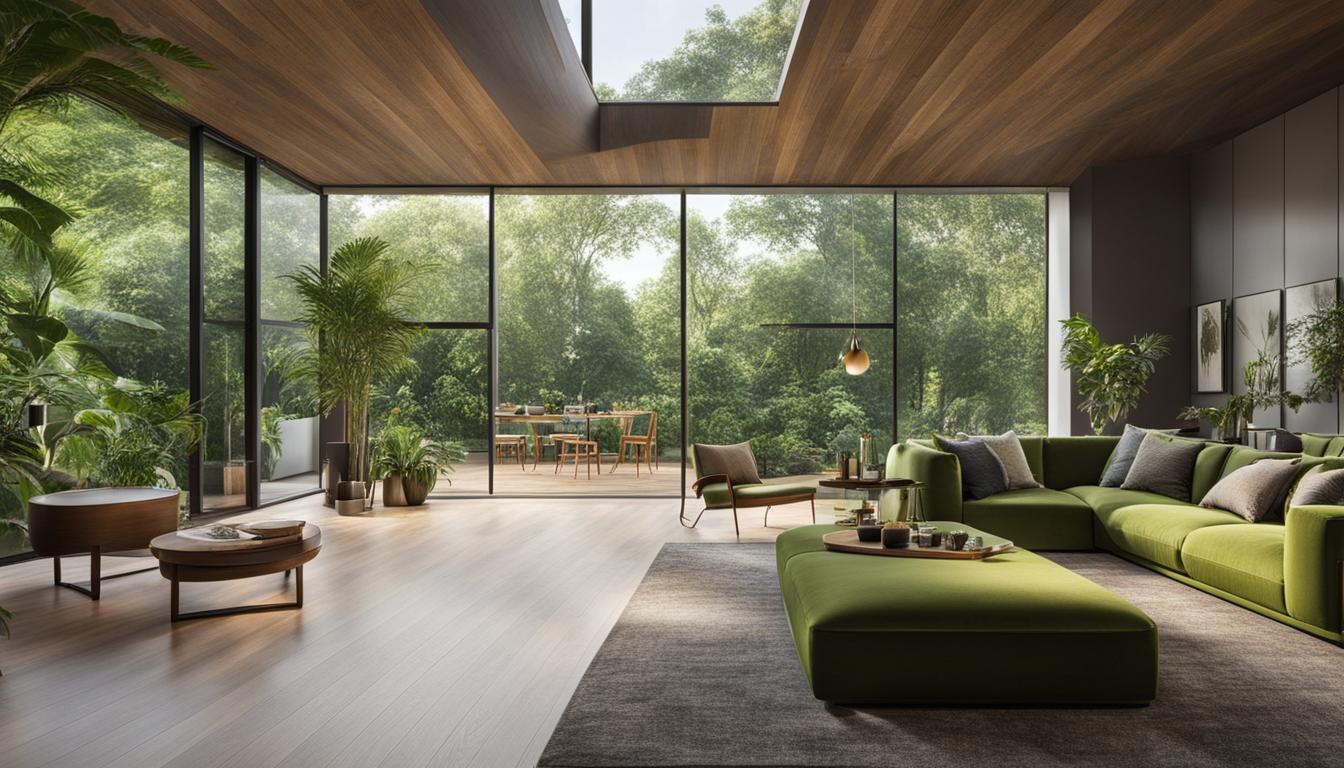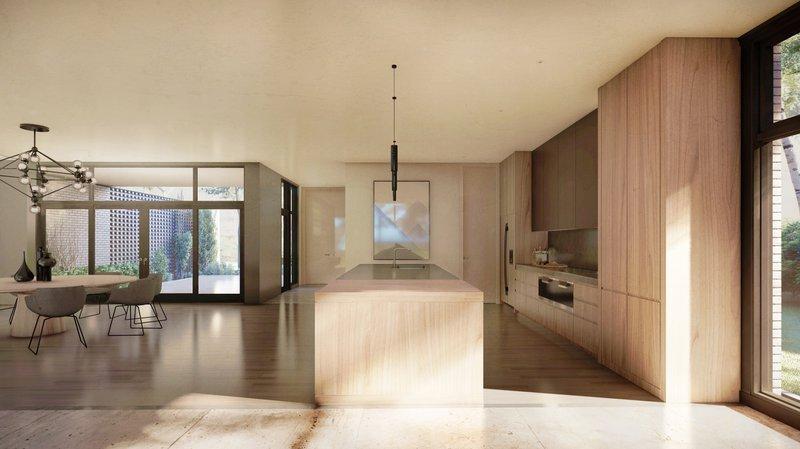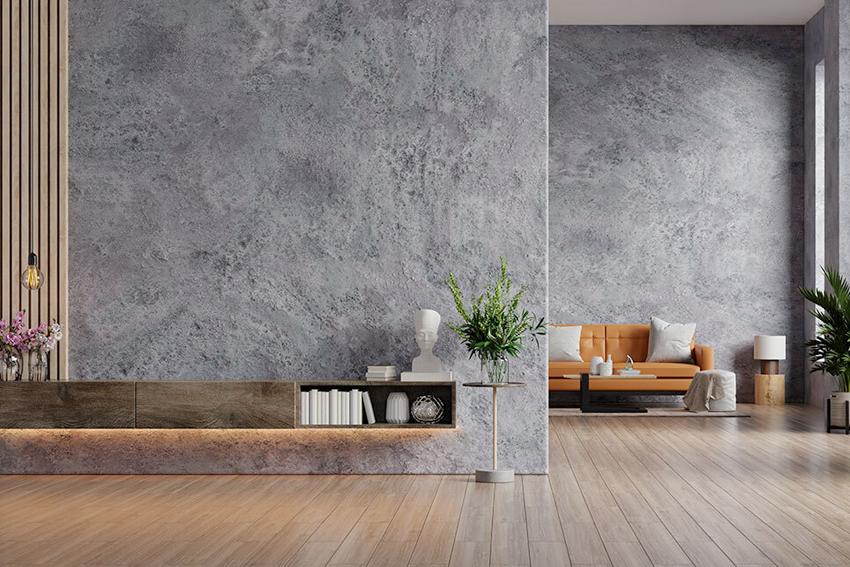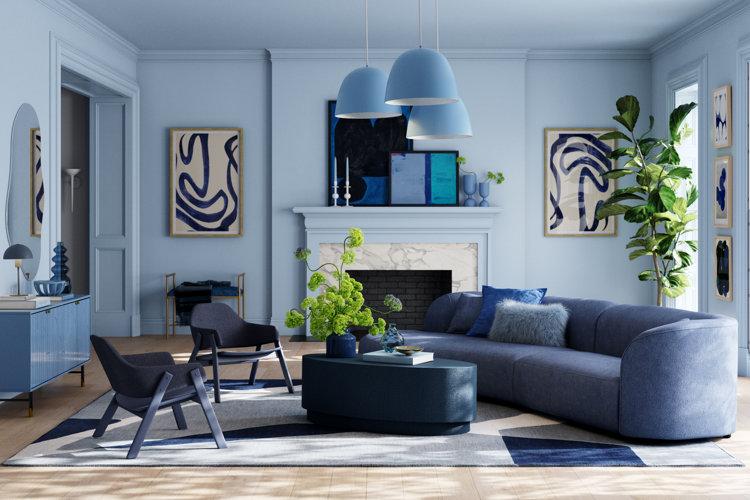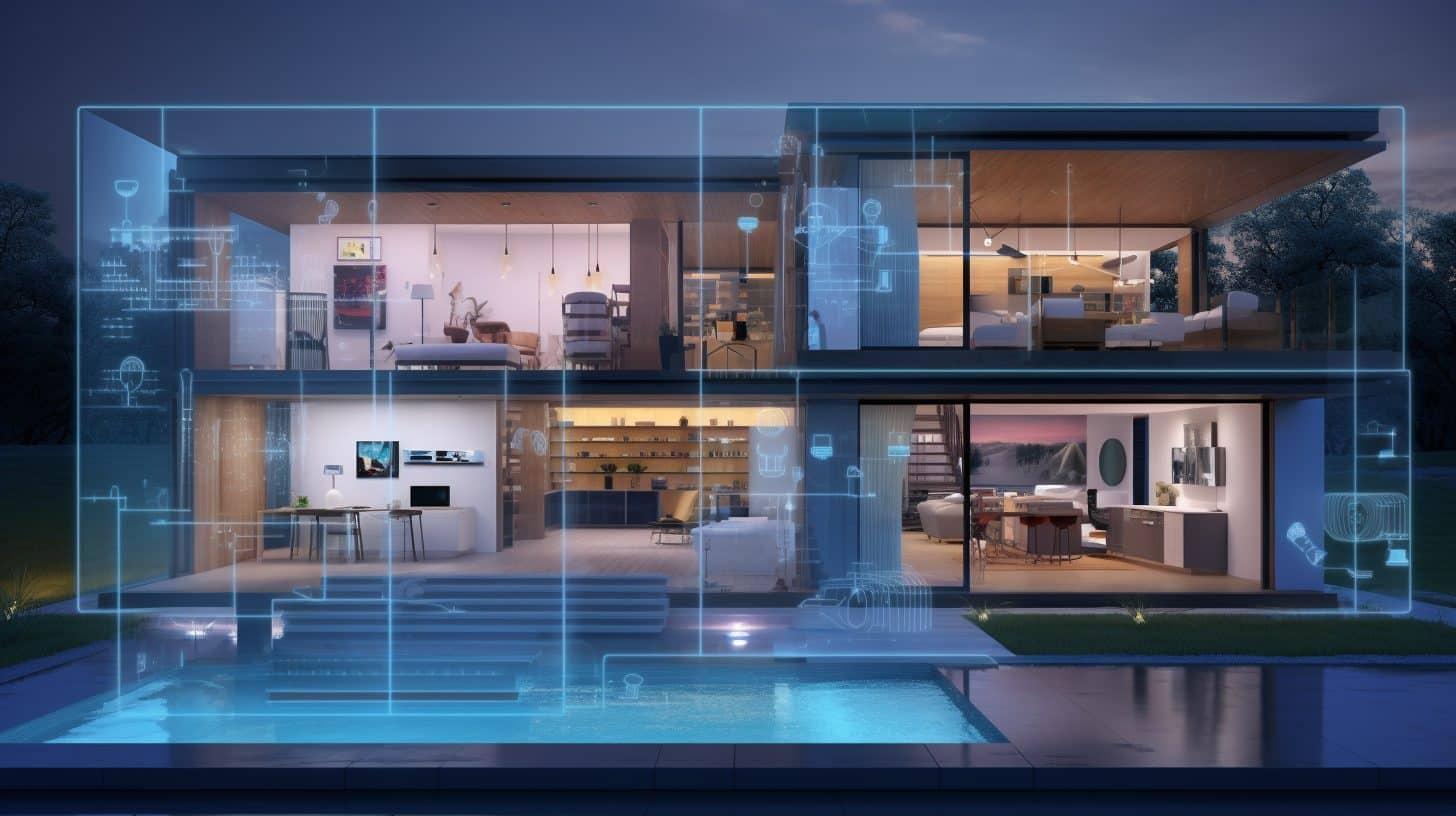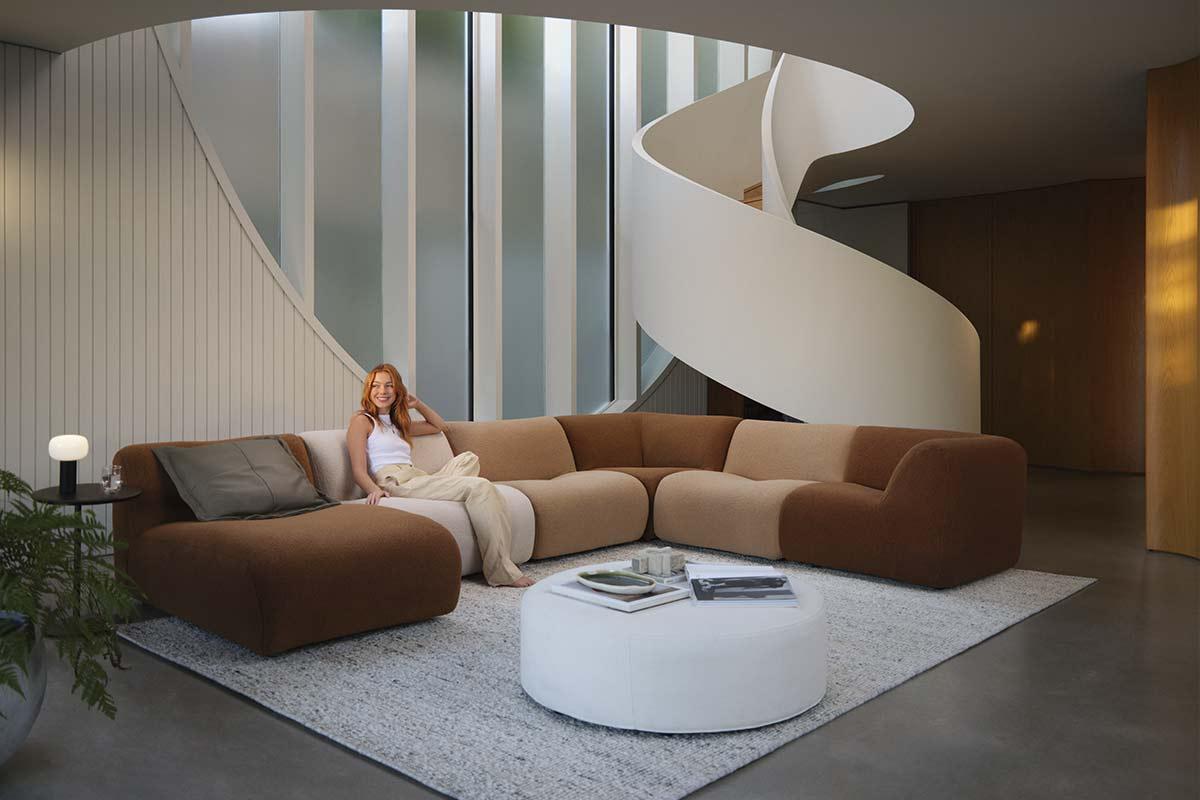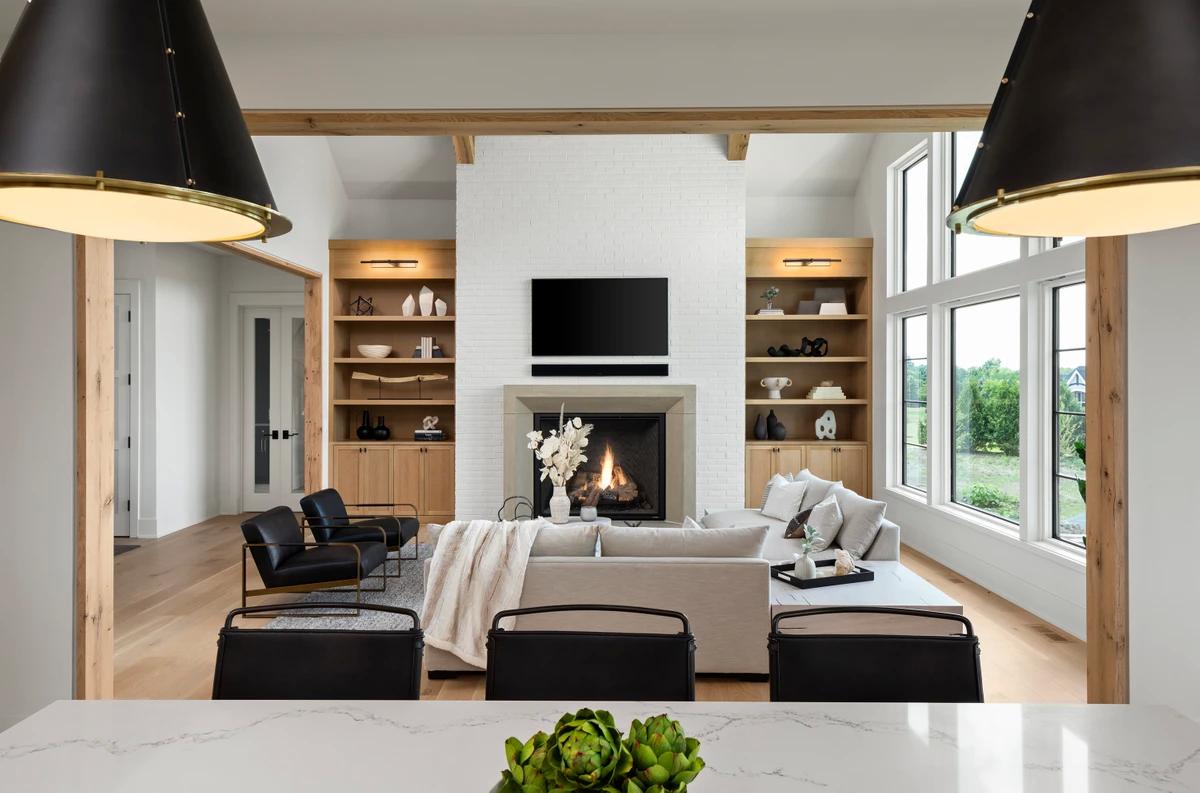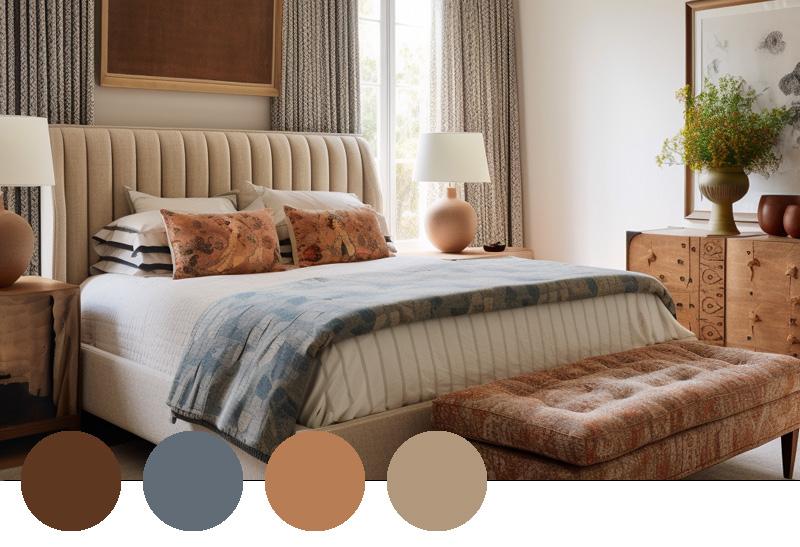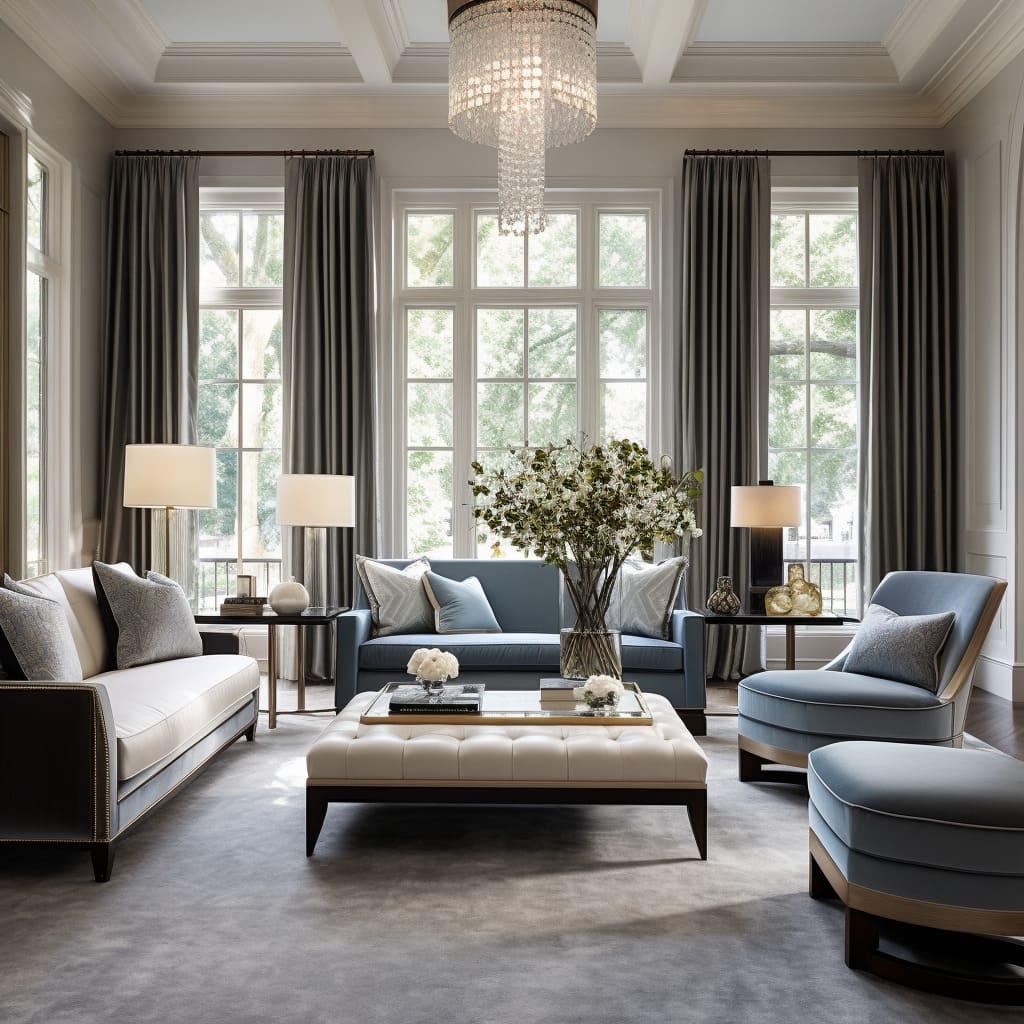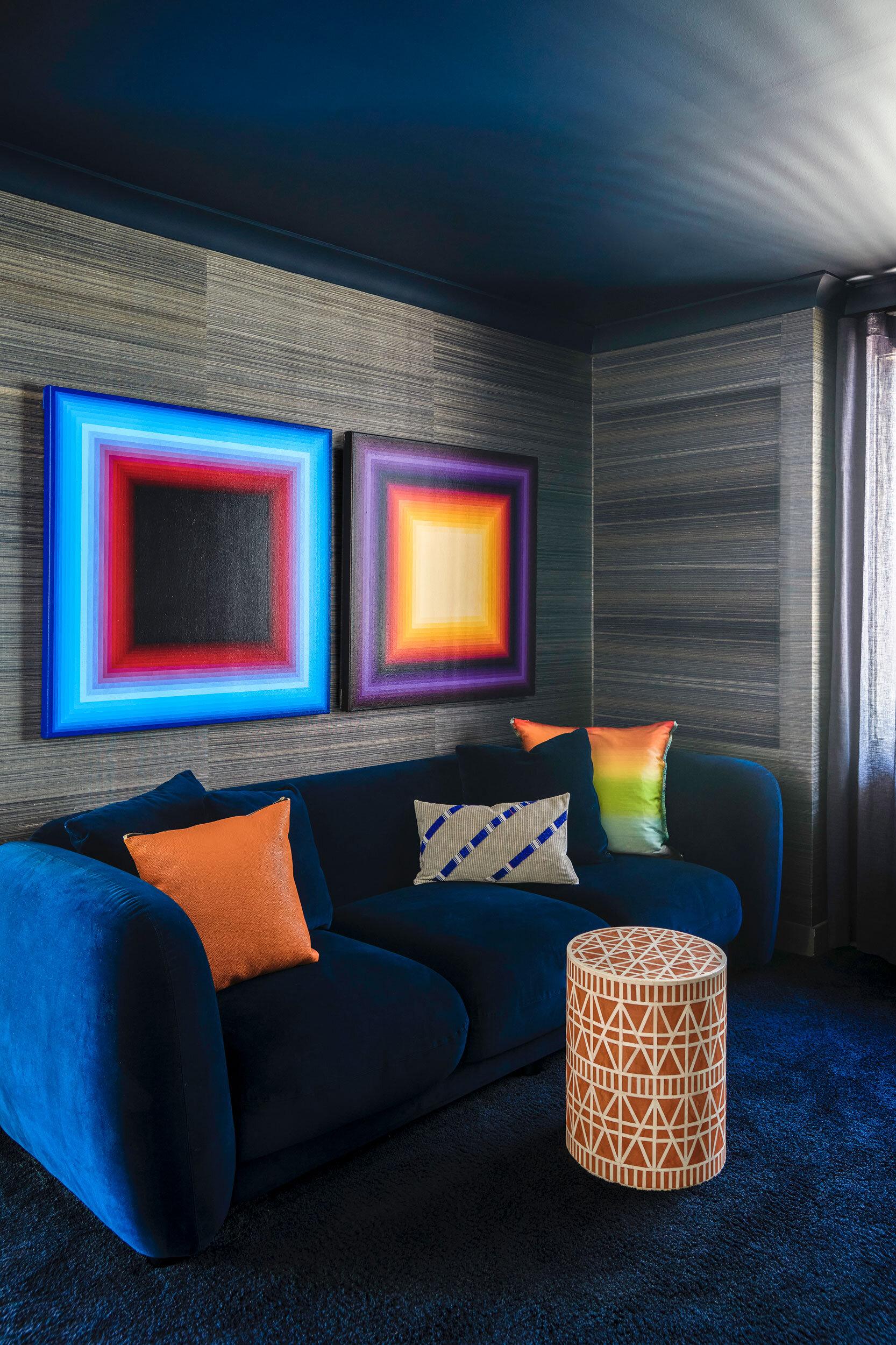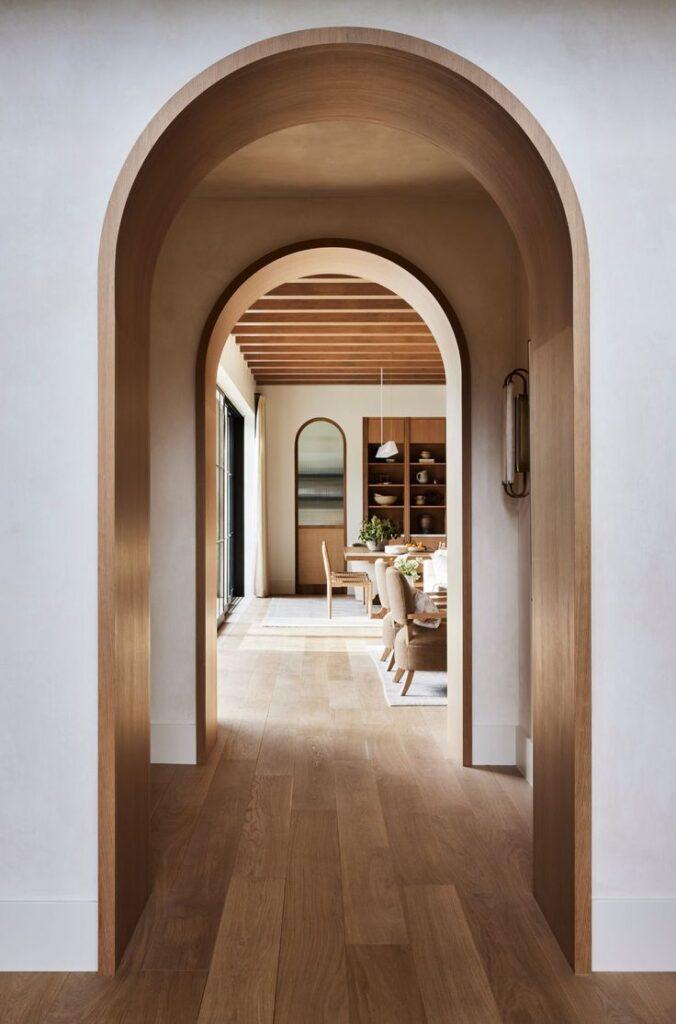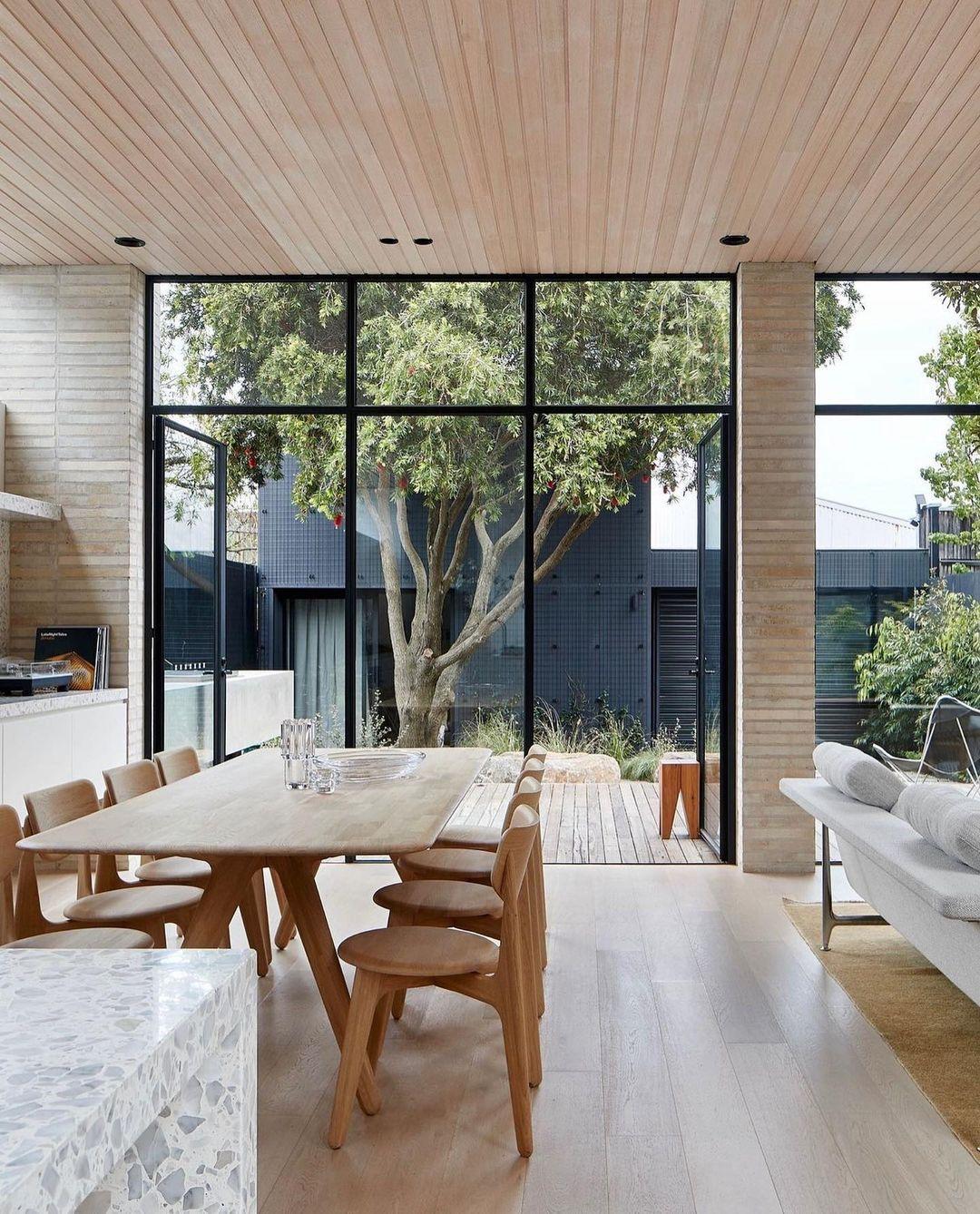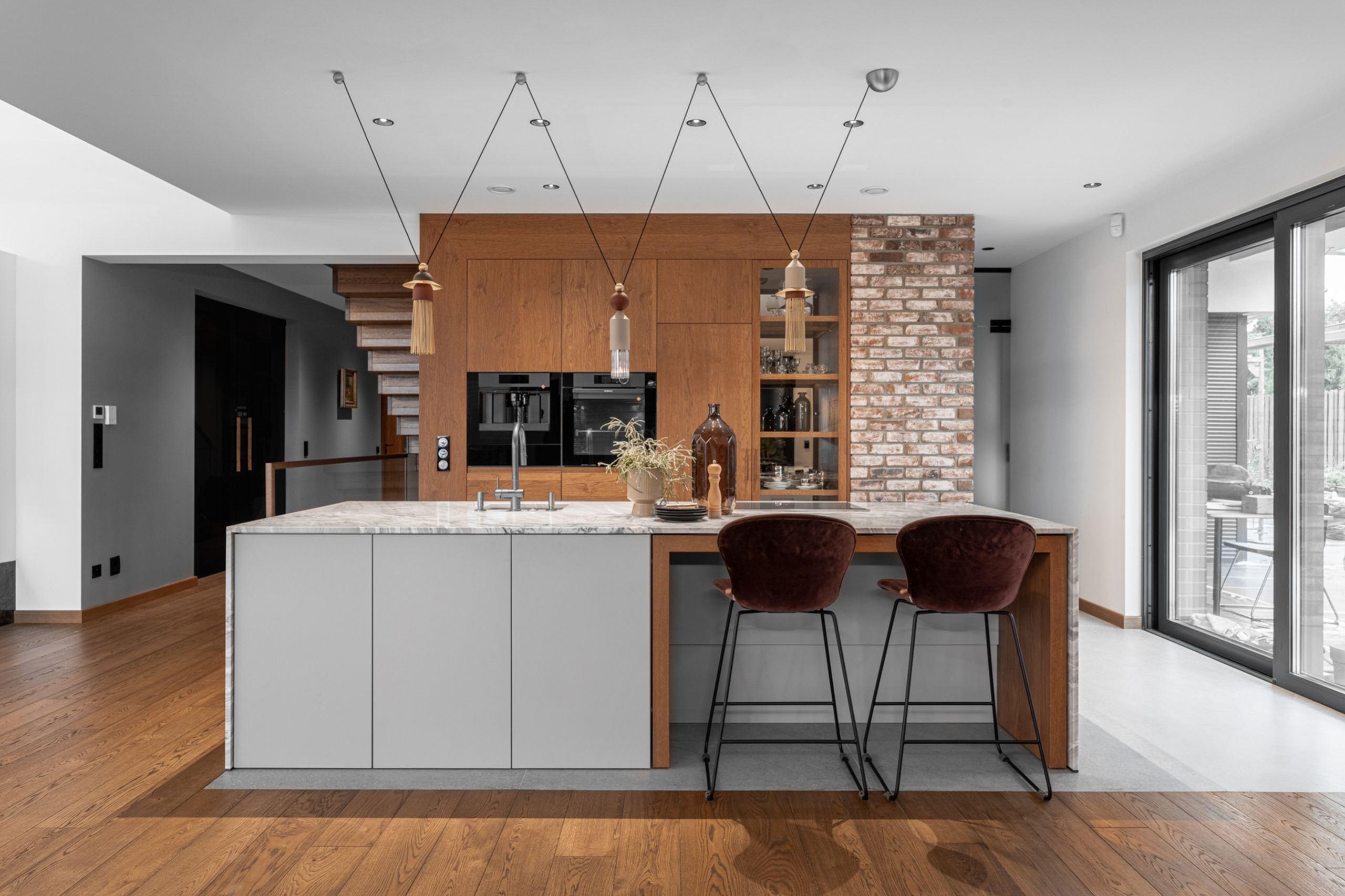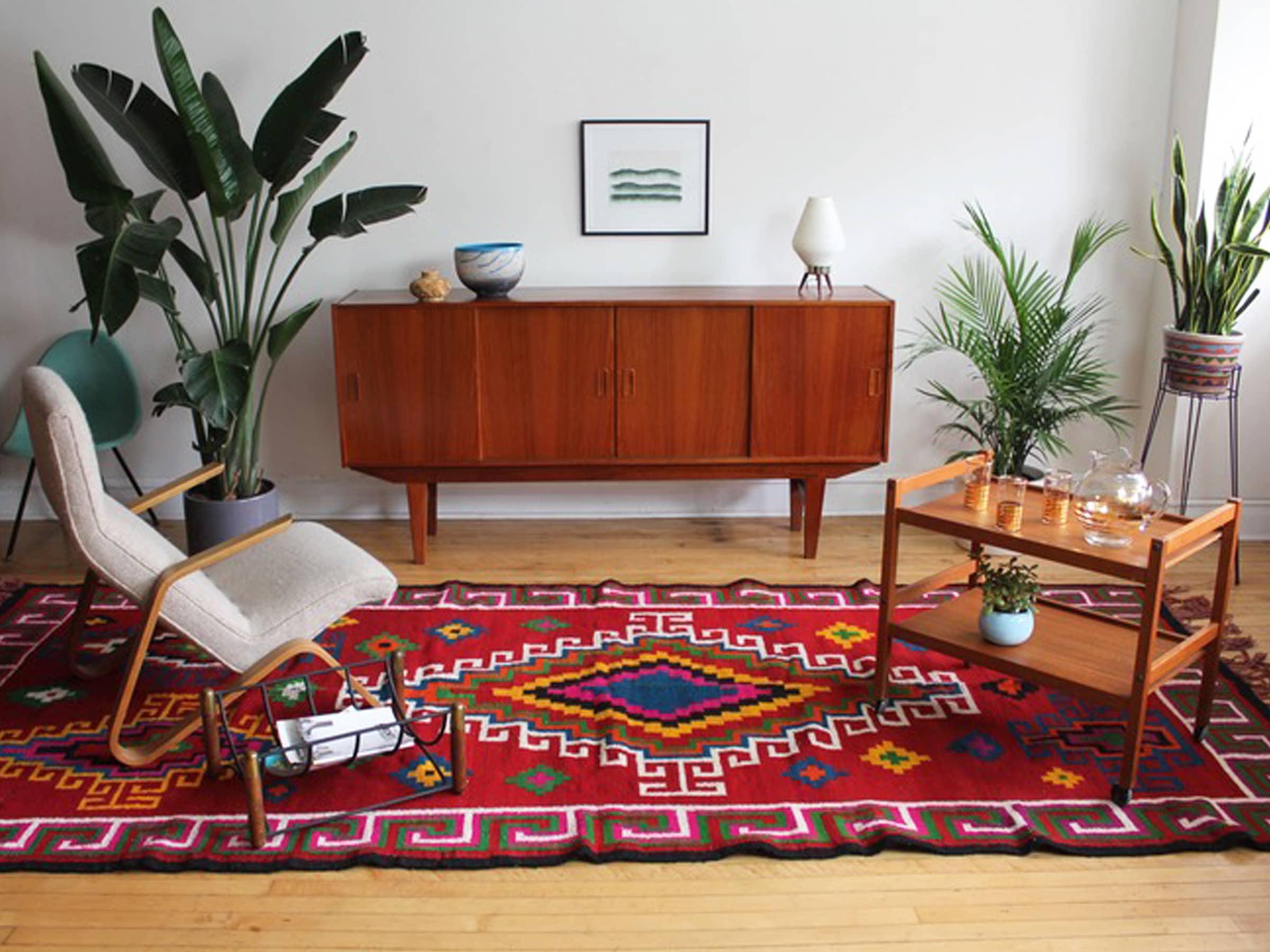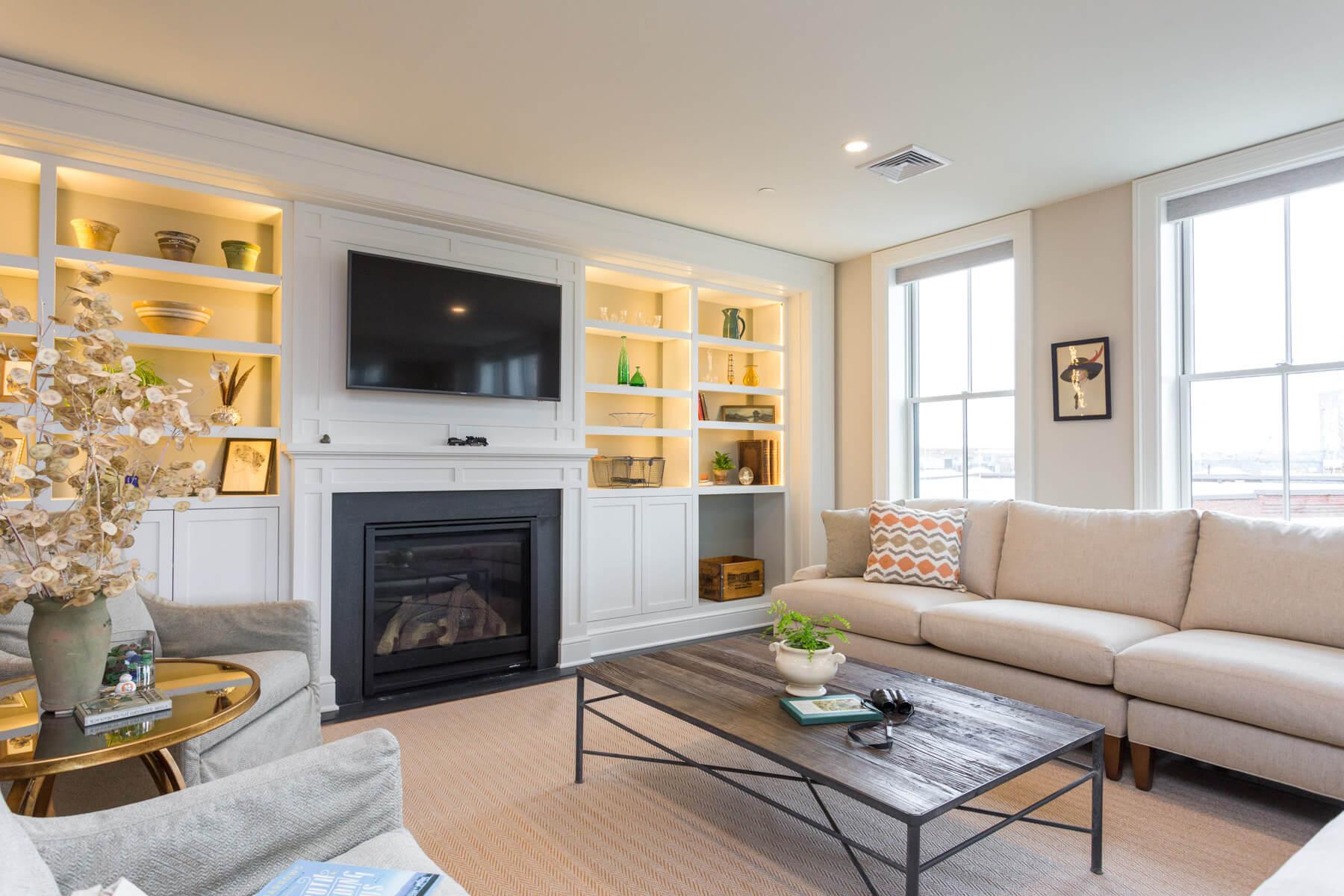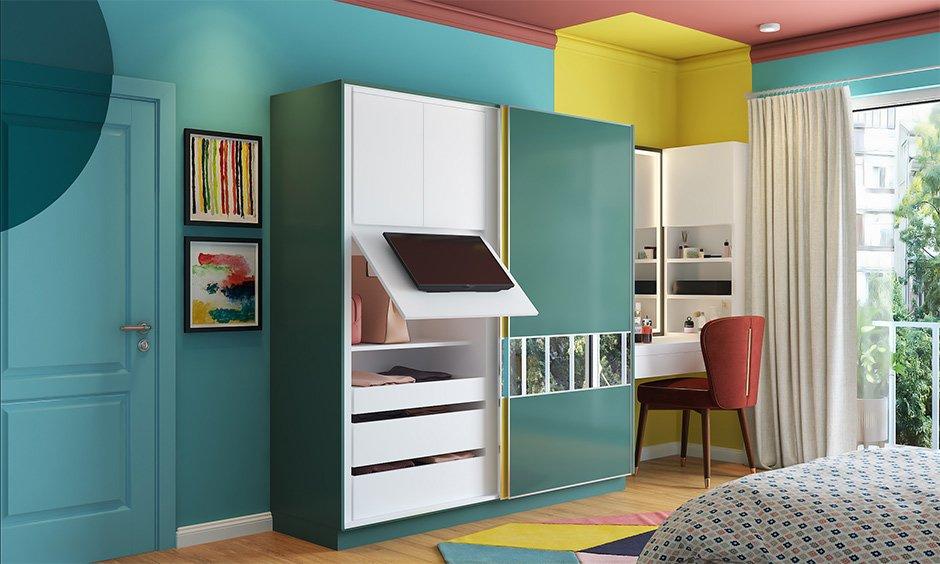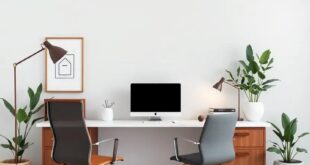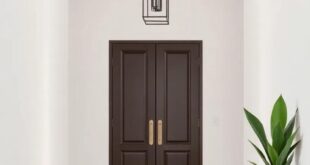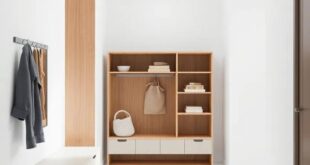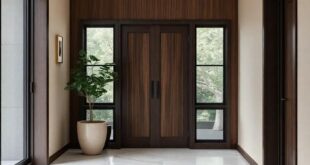In the ever-evolving world of home décor, staying ahead of trends can feel like a daunting task. Yet, transforming your living space into a haven of style and comfort doesn’t have to be overwhelming. Whether you’re a seasoned design enthusiast or just starting to explore your aesthetic, our curated list of “” is here to inspire and guide you. From bold color palettes to innovative textures, each trend invites you to reimagine your surroundings and enhances the ambiance of your home. Dive in and discover practical ideas and fresh concepts that promise to elevate your space and reflect your unique personality. Get ready to unleash your inner designer and embrace the possibilities that await you in each of these stunning trends!
Embrace bold colors for dynamic interior design transformations
To inject life and personality into your living spaces, consider the strategic use of bold colors. Vibrant hues can transform an ordinary room into a captivating environment, setting the mood and style you desire. Opt for statement walls painted in deep blues, rich greens, or striking yellows to serve as focal points in your home. Pair these bold backgrounds with complementary accessories, like bright cushions or artwork, to create an eye-catching contrast. The use of color blocking—where blocks of different colors are used together—can also add a layer of dynamism, inviting visual interest and depth.
Moreover, don’t shy away from introducing color in unexpected areas. Consider painting your ceilings in luminous shades or using brightly colored furniture pieces to add pops of color without overwhelming the space. Accent pieces, such as lamps, rugs, or vases in bold colors, can make a significant impact, allowing you to experiment without a full commitment. Remember, the key to embracing bold colors is balance—combine vivid accents with neutral backgrounds to ensure your space remains harmonious and inviting. For more inspiration on color trends, check out colorhouse.com.
Sustainable materials lead the way in modern interior design
Embracing sustainable materials is at the forefront of contemporary interior design, transforming spaces into eco-conscious havens. Designers are increasingly opting for bamboo, reclaimed wood, and hemp textiles, which not only add character but also minimize environmental impact. The use of these materials helps create a warm, inviting atmosphere while showcasing a commitment to sustainability. Plus, the variety in textures and finishes available allows for stunning visual contrasts, making spaces both beautiful and responsible.
Another trend gaining traction is the incorporation of recycled metals and natural stone. These materials not only boast durability but also tell a story of their origin and transformation. Interior designers are using these components in everything from cabinetry to decorative accents, creating unique focal points that spark conversation. With brands like EcoHaus leading the way in sustainable sourcing, homeowners can design interiors that reflect their values without sacrificing style.
Maximalism redefines interior design with vibrant patterns and textures
In a bold departure from minimalism, maximalism embraces the idea that more is indeed more. This interior design trend invites a riot of vibrant colors, intricate patterns, and a fusion of textures that keeps the eye dancing across the space. Forget stark white walls and monotone schemes; maximalism encourages layering with bright fabrics, ornate wallpapers, and a plethora of decor that reflects your personality. Incorporating bold floral prints, geometric designs, and striking color combinations can transform any room into a vibrant oasis that captivates and inspires.
To effectively implement this lush style, consider mixing different materials—think velvets paired with shiny metallics, or raw woods juxtaposed against sleek ceramics. Oversized furniture pieces adorned with eclectic prints can create a stunning focal point, while colorful accessories like cushions, throws, and art can enhance the ambiance. The key is to strike a balance; while maximalism thrives on abundance, a thoughtful arrangement of your chosen elements is essential to prevent overcrowding. Get inspired by trends on platforms like dezeen.com for fresh ideas on layering textures and patterns. Explore the endless possibilities that await!
Indoor plants bring life and freshness to interior design spaces
Integrating greenery into your living space is an effortless way to elevate the aesthetic appeal of your home. Indoor plants serve as natural air purifiers and bring a vibrant touch that brightens even the most minimalistic decor. From elegant succulents to towering fiddle-leaf figs, there’s a perfect plant for every corner, contributing to both form and function. Stylish pots can complement your interior design, ensuring that your green friends harmonize beautifully with your furniture and color scheme. A carefully curated plant selection can create layers and textures, turning empty corners into stunning focal points that draw the eye.
Moreover, plants have the incredible ability to influence mood and ambiance. Studies suggest that incorporating greenery reduces stress and enhances creativity, making your home a sanctuary of wellness as well as style. Whether you choose a hanging plant for a playful touch or a chic terrarium to add depth to your coffee table, the key is to find the right balance. To ensure that your home benefits from this trend, consider creating a plant care calendar to keep your indoor oasis thriving. For tips on how to style plants effectively, visit housebeautiful.com for resources and inspiration.
Vintage furniture adds character to contemporary interior design
Incorporating vintage furniture in your contemporary home can create a captivating juxtaposition that adds depth and personality to your living spaces. Unique pieces, whether a mid-century modern armchair or a retro side table, act as conversation starters while infusing history and warmth into a sleek, modern aesthetic. Pairing raw, rustic wood with polished metals or soft fabrics enhances the dynamic and provides a rich tapestry that draws the eye in. Moreover, vintage items often showcase craftsmanship that’s hard to find in mass-produced furniture today, allowing you to curate a space that’s not only stylish but also meaningful.
To maximize the impact of vintage furniture in your design scheme, consider blending various eras to create a cohesive look. Mixing and matching pieces can make your interior feel curated and intentional. Key strategies include:
- Layering textures: Combine leather, fabric, and wood for a multidimensional feel.
- Balancing proportions: Pair larger, statement vintage pieces with sleek contemporary designs.
- Using color: Incorporate shades found in vintage items to connect the room’s elements harmoniously.
By artfully combining styles, you can breathe life into contemporary interiors, making them feel inviting and unique. For inspiration on how to style your space with antique finds, check out Apartment Therapy.
Biophilic elements create harmony in interior design environments
- Natural Materials: Incorporate elements such as wood, stone, and bamboo into your decor. These materials not only add warmth and texture but also create a sense of being in nature, helping to ground your space.
- Indoor Plants: Introducing greenery enhances aesthetic appeal and improves air quality. Consider a mix of large floor plants and smaller tabletop varieties to create varied layers of lushness.
- Natural Light: Maximize sunlight by using sheer curtains or strategically placing mirrors to reflect light. This approach brings a refreshing brightness to the space and mimics the open feeling of the outdoors.
- Water Features: Adding small fountains or aquariums can introduce soothing sounds and visuals, promoting relaxation and a fluid connection to nature.
Color palettes inspired by nature can also evoke tranquility and balance. Earthy tones, soft greens, and sky blues not only link your design to the outdoor world but also create a calming environment conducive to well-being. Don’t be afraid to experiment with textures that remind you of natural landscapes; think soft textiles or rough surfaces that evoke the feeling of the great outdoors. Consider creating a point of focus with larger biophilic elements like living walls or moss fixtures that captivate with their organic beauty.
For an inspiring approach, a visit to ArchDaily can provide fresh ideas around incorporating these elements. To further enhance your biophilic design, think about including forms in your furniture that resemble natural shapes, such as rounded edges or organic silhouettes. This interplay between bold design and the subtle influences of nature can lead to unique spaces that foster comfort and creativity.
Statement lighting fixtures elevate traditional interior design aesthetics
Incorporating bold lighting fixtures into a traditional interior design scheme transforms the space into something uniquely captivating. These fixtures serve as eye-catching focal points that provide both functional illumination and artistic flair. Whether it’s a grand chandelier dripping with crystals or a modern sculptural pendant, statement lighting can dramatically elevate the overall aesthetic of a room, enhancing the character of traditional elements. Consider mixing styles, such as a vintage brass fixture paired with contemporary decor, to create a dynamic interplay between old and new.
The harmony of textures and forms is essential for a cohesive design. Delve into striking materials ranging from handcrafted glass to polished metals that reflect light beautifully. Here are some popular styles of statement lighting to consider:
- Industrial Fixtures: These often feature raw materials like exposed bulbs and metals, adding a rustic yet modern vibe.
- Crystal Chandeliers: Timeless elegance that enhances grandeur and sophistication.
- Geometric Designs: Modern shapes that provide a clean, artistic look and feel.
- Artistic Sculptures: Unique pieces that serve as both lighting and art, making a bold statement.
| Fixture Type | Best For |
|---|---|
| Chandeliers | Entryways, dining rooms |
| Pendants | Kitchens, living rooms |
| Sconces | Hallways, bedrooms |
| Floor Lamps | Reading corners, study areas |
For further inspiration and tips on selecting the ideal lighting fixtures, visit Architectural Digest.
Open floor plans promote flow in contemporary interior design
In contemporary interior design, open floor plans have revolutionized the way we perceive and utilize space. By removing walls that often confine rooms, these layouts create a seamless transition between different living areas, promoting a sense of flow that makes both movement and communication more natural. This design approach encourages versatility, allowing homeowners to rearrange furniture and decor to suit their needs effortlessly. Additionally, the interconnectedness achieved through an open layout can improve circulation of light and air, making spaces feel larger and more inviting.
Moreover, the aesthetic appeal of open floor plans caters to modern tastes, often prioritizing minimalism and functionality. The lack of barriers invites creativity, enabling distinct zones to be defined through furnishings, area rugs, or variations in color and texture rather than walls. This fluidity not only enhances the overall ambiance but also fosters a communal living experience, ideal for entertaining guests or spending quality time with family. Embracing this trend can immensely elevate your home’s design, creating a warm and inviting atmosphere that will leave a lasting impression. For inspiration on incorporating an open floor plan in your home, check out Houzz.
Textured walls offer unique sophistication in interior design
Textured walls are gaining popularity in interior design, adding layers of sophistication and artistic flair to various spaces. Whether through unique paint techniques, wall coverings, or innovative materials, textured surfaces create visual interest and depth that flat walls cannot achieve. They can transform a standard room into an inviting sanctuary, offering a tactile experience that invites touch and interaction. Consider incorporating textures such as stucco, shiplap, or even 3D wall panels for a stunning centerpiece that captures admiration.
This design feature not only enhances aesthetics but also contributes to a room’s acoustics and warmth. Aesthetically, textured walls can serve as a backdrop for art pieces or furnishings, showcasing them in a new light. They can also play a role in color schemes; for instance, a soft matte finish can create a calming atmosphere, while glossy textures can reflect light and create a lively ambiance. Explore various textures with the right materials to align with your desired mood, as seen in the inspiration on Decoist. Moreover, combining textures can lead to sophisticated layering that enhances any room’s character.
Monochromatic color schemes provide elegance in interior design
Monochromatic color schemes are the epitome of sophistication, breathing life into any space with a sense of unity and tranquility. By using different shades and tints of a single color, you can create a visually arresting atmosphere that feels both chic and timeless. Textures play a vital role in enhancing the depth of these schemes; consider pairing smooth fabrics with rougher surfaces, or glossy finishes against matte ones. This interplay not only adds dimension but also invites exploration, as guests are drawn to the subtleties that different hues can unveil. To fully embrace this trend, focus on key areas where monochromatic palettes shine:
- Living Rooms: Choose a palette of blues for a calming vibe, using navy, sky, and teal.
- Bedrooms: Soft grays can evoke serenity, complemented with different textiles in the same color family.
- Kitchens: Whites combined with off-whites or creamy tones create a spacious and airy feel.
To achieve maximum impact, consider integrating statement pieces that anchor the room without sacrificing the monochromatic theme. These could include artwork, furniture, or even accent walls that provide interest without overwhelming the color scheme. Tables, such as the one below, can help organize your ideas while planning your design:
| Room | Color | Accent Texture |
|---|---|---|
| Living Room | Blue | Velvet Sofa |
| Bedroom | Gray | Knitted Throws |
| Kitchen | White | Marble Countertops |
Explore more inspiration for your monochromatic interiors.
Smart technology integrates seamlessly into modern interior design
Gone are the days when technology felt like an afterthought in our living spaces. Today’s smart technology is intricately woven into the fabric of modern interior design, enhancing aesthetics while increasing functionality. From sleek smart speakers to elegant automated lighting systems, these innovations are designed to blend seamlessly with the decor. Homeowners are increasingly opting for devices that not only serve a purpose but also elevate the overall ambiance of the room, transforming ordinary spaces into smart sanctuaries.
Designers are also exploring a palette of color and materials that complement smart technologies. Imagine a minimalist living room with a beautifully integrated smart thermostat beside a stunning piece of art. Features such as hidden wiring and smart shades that match your interior are now common practice. Here are some standout examples:
- Smart Furniture: Pieces like modular sofas featuring built-in charging ports and speakers.
- Automated Lighting: Systems that adjust brightness and color temperature throughout the day.
- Voice-Controlled Assistants: Devices that blend into your decor, providing sophisticated control without clutter.
Moreover, the advent of a “smart home ecosystem” allows homeowners to customize settings across various devices, creating a cohesive living environment. Integrating technology into interior design is not merely about compatibility; it’s about crafting experiences that align with modern lifestyles. For more inspiration on how to incorporate smart technology in your designs, check out Architectural Digest.
Curved furniture shapes add softness to interior design styles
Curved furniture shapes are transforming spaces by introducing a gentle flow into various interior design styles. These sinuous lines soften the overall aesthetic, breaking away from the starkness of traditional angular furnishings. Whether it’s a plush, rounded sofa or an elegantly curved chair, these pieces evoke a sense of comfort and relaxation, encouraging a more intimate atmosphere in any room. The versatility of curved designs is evident as they seamlessly integrate into multiple styles, from modern minimalism to bohemian chic.
As homeowners seek ways to create cozy and inviting environments, incorporating rounded elements is becoming increasingly popular. This approach not only adds visual interest but also creates a balanced look that can soften the rigid lines of architectural details. Choose from a variety of options such as:
- Arched accent chairs
- Round coffee tables
- Curvy sofas
- Circular ottomans
- Wavy sideboards
Opting for these sculptural designs can enhance your space’s flow while making it feel more dynamic. To dive deeper into the allure of curved furniture and explore some stunning pieces, check out architecturaldigest.com for inspiration.
Artisanal decor pieces highlight craftsmanship in interior design
A well-curated collection of artisanal decor can transform a room from ordinary to extraordinary. Consider focusing on statement pieces such as bold wall art, handcrafted lighting fixtures, or custom furniture that reflect your personal style. These items are often one-of-a-kind and will spark conversations with guests. Explore local artisan markets or reputable online platforms like Etsy to discover unique finds that resonate with your taste. When thoughtfully integrated into your design scheme, these artisanal elements celebrate craftsmanship and create a memorable atmosphere.
Earthy tones connect interior design to natures palette
Embracing earthy tones in interior design creates a seamless connection between indoor spaces and the natural world, inviting a sense of calm and tranquility into your home. Shades like terracotta, olive green, and warm beige evoke the beauty of landscapes while serving as a versatile canvas for various styles. By integrating these hues, you bring the essence of nature indoors, effortlessly complementing organic materials such as wood, stone, and woven textiles. This palette not only promotes a serene atmosphere but also enhances the visual warmth of any room, making it feel cozy and lived-in.
Incorporating earthy tones into your interior spaces can be achieved through various design elements. Consider the following ways to build your earthy aesthetic:
- Wall Colors: Paint your walls in soft muted greens or sandy browns to establish a natural backdrop.
- Furniture Choices: Opt for reclaimed wood tables or rattan chairs that reflect the organic textures of nature.
- Accessorize: Adorn your space with terracotta pots, jute rugs, and nature-inspired art pieces to enhance the earthy vibe.
- Natural Light: Maximize daylight with large windows to create a bright and airy environment that resonates with the outdoors.
Furthermore, consider a mix of elements that incorporate different shades and textures for visual interest. A harmonious blend of muted tones can be reinforced through strategically placed indoor plants, which contribute to the natural feel while purifying the air. The table below offers some popular earthy color combinations that can inspire your next design project:
| Color Combination | Best Uses |
|---|---|
| Terracotta & Cream | Living rooms and kitchens |
| Olive Green & Soft Gray | Bedrooms and study areas |
| Burnt Sienna & Beige | Dining spaces and entryways |
| Dusty Blue & Khaki | Bathrooms and casual lounges |
Discover more ways to infuse your home with nature’s beauty by visiting Houzz.
Layered textiles enhance comfort in interior design settings
Layering textiles is an artful way to create a warm, inviting atmosphere in any interior space. By combining various materials and textures, you can achieve a sense of depth that adds visual interest and comfort. Throw pillows, area rugs, and blankets are excellent starting points – play with patterns, colors, and fabric types to create a dynamic layered look. For a cohesive feel, consider a mix of cotton, linen, and velvet that not only looks stylish but also provides tactile comfort. Positioning a plush rug underfoot and draping soft throws over furniture invites people to settle in and enjoy the space.
In addition to softness, layered textiles can serve functional purposes as well. They help to absorb sound and create a sense of intimacy in larger spaces, making them feel cozy and approachable. Incorporating sheer curtains with heavier drapes allows you to control light while still enjoying privacy. Using a variety of textile weights helps to anchor the room, especially when harmonizing with your color palette. You might consider weaving in elements of natural fibers, like jute or wool, for a rustic touch that complements modern design. Check out resources available at Architectural Digest for more inspiration on textile layering techniques.
Functional spaces prioritize usability in innovative interior design
In the ever-evolving landscape of interior design, creating spaces that prioritize usability is essential for enhancing both comfort and aesthetics. Spaces that accommodate everyday life without sacrificing style enable inhabitants to navigate their environment seamlessly. Designers are embracing innovation by integrating multipurpose furniture, flexible layouts, and smart storage solutions. Consider features such as:
- Convertible furniture: Pieces that transform according to need, such as sofa beds or extendable dining tables.
- Built-in storage: Optimizing vertical space with shelves, cabinets, and hidden compartments.
- Open floor plans: These facilitate movement while allowing rooms to serve multiple functions.
An excellent approach to achieving functional spaces is by employing a minimalist aesthetic, emphasizing clean lines and decluttered areas. This design philosophy encourages easy navigation and fosters a sense of calm. Moreover, integrating technology can enhance functionality profoundly. Smart home systems empower users to control lighting, temperature, and security efficiently. Additional elements to consider include:
- Ergonomic design: Furniture that supports health and well-being during daily activities.
- Zoning: Creating distinct areas within a single space for various activities.
- Natural materials: Utilizing wood, stone, and textiles to promote warmth and comfort.
For more insights into crafting functional yet stunning spaces, visit Architectural Digest.
Archways create visual interest in expansive interior design
- Elegant Transitions: Archways serve as elegant transitions between different spaces, providing a sense of flow that enhances the overall connectivity of your home. They draw the eye and invite exploration, allowing guests to appreciate the seamless blend of rooms.
- Architectural Charm: These striking features add an architectural element that redefines a room’s aesthetic. Their curves and lines can soften the look of stark corners and create an inviting atmosphere that makes spaces feel larger and more cohesive.
| Type of Archway | Design Benefit |
|---|---|
| Classic Rounded | Timeless charm, effortless integration |
| Modern Geometric | Sleek, bold statements that captivate |
| Rustic Barn | Cozy and inviting, perfect for a farmhouse aesthetic |
By incorporating archways into your interior design, you can enhance storytelling through spatial arrangement. These architectural elements become focal points that not only function as doorways but also encourage interaction between different areas of your home. The right archway can transform an ordinary corridor into an enchanting pathway that adds depth and invites natural light, making your living spaces more vibrant and full of life. For further inspiration on integrating archways into your modern design, visit Architectural Digest.
Minimalist trends promote simplicity in chic interior design
In recent years, the shift towards minimalist design has gained momentum, carving out a niche that emphasizes clean lines and uncluttered spaces. This design philosophy evokes a sense of tranquility, allowing homeowners to embrace a more intentional way of living. Common elements include neutral color palettes, functional furniture, and natural materials, which blend together to create a serene environment. The mantra of “less is more” resonates deeply within this aesthetic, urging designers and homeowners alike to pare down belongings and focus on what truly matters.
To bring simplicity into your home, consider adopting the following concepts:
- Open Spaces: Encourage airiness by eliminating unnecessary walls and barriers.
- Multi-Functional Furniture: Opt for pieces that serve multiple purposes, like a sofa bed or coffee table with storage.
- Natural Light: Maximize sunlight by using sheer curtains or opting for large windows to foster a bright, inviting atmosphere.
- Artful Minimalism: Select a few carefully curated decorative items that resonate with you, rather than a plethora of trinkets.
By embracing these minimalist trends, you can craft an inviting space that reflects both sophistication and simplicity. Pairing these techniques with a touch of personal style will not only enhance your interior but also promote a lifestyle centered around clarity and calm. For further inspiration on minimalist decor, check out Architectural Digest.
Custom cabinetry optimizes space in stylish interior design
Custom cabinetry is an art form that merges functionality with aesthetics, transforming ordinary spaces into remarkable realms of style and organization. With an array of materials, finishes, and designs available, homeowners can tailor their cabinetry to enhance the overall ambiance of their interiors. By incorporating intelligent storage solutions, custom cabinetry allows for the efficient use of every inch, turning awkward nooks and crannies into valuable, stylish features. Imagine deep pull-out drawers wrapped in elegant wood grain finishes, or open shelving showcasing your favorite decor—these elements not only declutter but also create visual interest.
Whether in kitchens, bathrooms, or living areas, custom-built cabinets maximize space while preserving the sleek, sophisticated look that defines modern interior design. Here are some benefits to consider:
- Personalization: Tailor your cabinetry to match your unique style and color palette.
- Quality Materials: Custom options allow for superior materials that elevate the space.
- Built to Fit: Perfectly designed for your space, eliminating wasted areas.
- Enhanced Functionality: Drawers and compartments designed for specific items streamline organization.
As you explore the potential of custom cabinetry, you’ll not only create a stunning aesthetic but also an environment that fosters ease of living. Take note of the various designs available—consider elements like hidden drawers, integrated lighting, and decorative accents that can elevate your interiors to the next level. Explore more inspirations from Houzz and discover how you can bring your custom cabinetry dreams to life!
Vintage rugs bring warmth and charm to interior design
When it comes to creating a cozy atmosphere, nothing compares to the charm of vintage rugs. These exquisite pieces not only add a sense of history to your space but also provide a unique focal point that ties together your interior decor. Their intricate patterns and rich textures can soften stark lines and hard surfaces, instantly making a room feel inviting. When selecting a vintage rug, consider how it complements your existing color scheme and furniture styles. Popular choices include Persian and Turkish designs which offer vibrant hues and timeless artistry that can breathe life into even the simplest of settings.
Incorporating vintage rugs into your interior design allows for a layered aesthetic that reflects personal style and stories. They work remarkably well in various spaces, from living rooms to bedrooms, and can be juxtaposed with modern elements for a stunning contrast. Whether used as a statement piece or simply for comfort, these rugs infuse warmth into any environment. Embrace the beauty of imperfection; scuffs and fading only add to their character. For care tips and ideas on styling vintage rugs, check out The Spruce.
Neutral palettes set the stage for bold interior design accents
When it comes to interior spaces, a neutral color palette creates a perfect canvas for showcasing eye-catching design elements. These subdued shades—think soft whites, beiges, and light grays—allow bold accents to shine brightly, making your decor pop without overwhelming the senses. Utilizing a foundation of neutral tones makes it easier to experiment with vibrant accessories, artwork, or furniture pieces that truly stand out. By layering textures through various materials, you can add depth and interest while keeping the overall look cohesive and elegant.
To elevate your design game, consider incorporating statement pieces that draw the eye, such as oversized artwork or striking lighting fixtures. Furthermore, using accents like colorful throw pillows, vibrant rugs, or unique wall decor can bring personal flair to your space while maintaining a sophisticated backdrop. The balance of calm neutrals with energetic touches fosters an inviting atmosphere, ideal for both relaxation and social gatherings. For more inspiration on how to flawlessly integrate these concepts into your home, visit Architectural Digest for expert insights and ideas.
| Neutral Colors | Bold Accents |
|---|---|
| Soft White | Electric Blue Throw Pillows |
| Warm Beige | Rustic Orange Artwork |
| Light Gray | Emerald Green Rugs |
| Cool Taupe | Crimson Decorative vases |
Multifunctional furniture maximizes space in smart interior design
As we all strive to create functional yet stylish spaces in our homes, multifunctional furniture has emerged as a game-changer in contemporary interior design. These innovative pieces not only serve multiple purposes but also help streamline your living area, perfect for maximizing small spaces. Consider a sleek sofa bed that transforms your living room into a guest bedroom, or a coffee table with built-in storage to keep your living area tidy without compromising on style. The key is to select items that can adapt to your needs, paving the way for a versatile and organized home.
Among the popular options are extendable dining tables that can accommodate more guests when needed and compact workstations that can be tucked away after use. The trend leans heavily on sustainability as well, with many designs being crafted from reclaimed materials, thus adding a touch of character while being eco-friendly. By incorporating such adaptable furniture, you can find harmony between aesthetics and utility, enhancing your room’s functionality. For more inspiration, explore the latest in multifunctional design at dezeen.com.
Closing Remarks
As we wrap up our journey through these 23 stunning interior design trends, it’s clear that the world of interiors is as dynamic and varied as our individual tastes. Whether you’re inspired to dive into the bold colors of maximalism, the serene vibes of minimalism, or anything in between, there’s something here for every style enthusiast. These trends are not merely fleeting fads but invitations to rethink your space and reflect your personality.
Remember, the beauty of interior design lies in its versatility—mix and match, experiment, and most importantly, have fun! Each element you choose to incorporate can transform your home into a sanctuary that resonates with your unique story.
So, why not start today? With a fresh perspective and a little creativity, your perfect space is just a project away. Happy decorating!
 decorifusta Garden and patio decoration inspiration
decorifusta Garden and patio decoration inspiration
